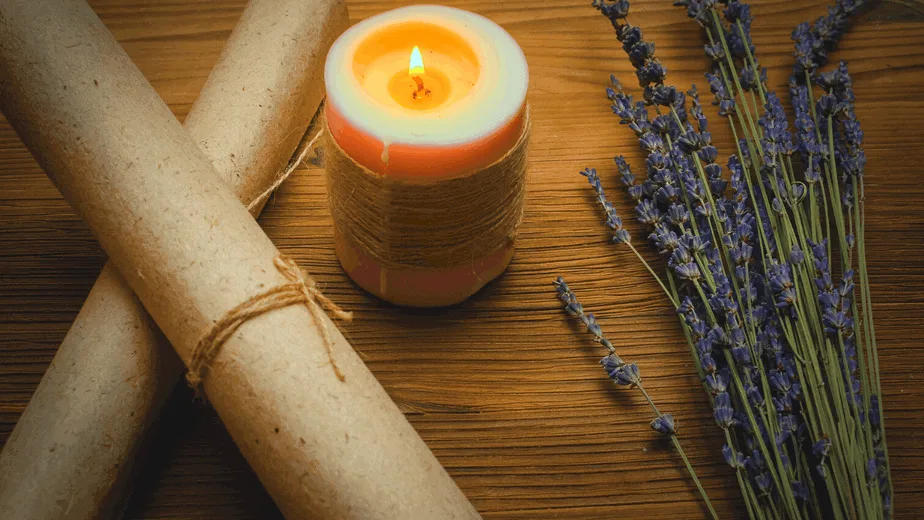Please note that posts on this site may contain affiliate links
Foraging and wildcrafting are practices that involve gathering food and other resources from the natural environment. Whether you are seeking out wild herbs, fruits, or mushrooms, or collecting materials for crafting or medicine, these activities can be a way to connect with the natural world and the rhythms of the seasons.
As with any spiritual or magical practice, it can be helpful to have deities or spirits as allies and guides. In this blog post, we will explore some of the deities associated with foraging and wildcrafting, and consider how they might be approached and honored in these practices.
- The Hunt: Artemis as the Goddess of Forests and Wildlife
- The Wild: Pan as the God of the Wild
- The Vegetative Life Force: Dionysus as the God of the Vegetative Life Force and the Woods
- Other Deities: Demeter, the Goddess of Agriculture, and Apollo, the God of the Sun
- Offerings and Prayers: Honoring the Deities of Foraging and Wildcrafting
- Conclusion
The Hunt: Artemis as the Goddess of Forests and Wildlife
In Greek mythology, Artemis is the daughter of Zeus and Leto, and the twin sister of Apollo. She is often depicted as a huntress, carrying a bow and arrows, and is revered as the goddess of forests, wildlife, and hunting. As such, Artemis might be seen as a patron of those who engage in foraging and wildcrafting, as these activities involve gathering resources from the natural world.
In the stories and myths surrounding Artemis, she is often depicted as fiercely independent and fiercely protective of her domain. She is associated with the wilderness and the animals that inhabit it, and is said to be a patron of childbirth and young children. Artemis is also associated with the moon and the tides, and is sometimes depicted with a crescent moon on her head or her bow.
One of the most well-known stories about Artemis involves the hunter Actaeon, who stumbled upon the goddess while she was bathing in a stream. Artemis was so outraged by his intrusion that she turned him into a stag, and he was subsequently torn apart by his own hunting dogs. This story serves as a cautionary tale about respecting the boundaries of the wild and the goddess who reigns over it.
The Wild: Pan as the God of the Wild
In Greek mythology, Pan is the god of the wild, and is often depicted with the horns, legs, and tail of a goat. He is a pastoral god, associated with shepherds and their flocks, and is also revered as the god of music and the arts. As such, Pan might be seen as a patron of those who engage in wildcrafting, as this practice involves gathering materials from the natural world for use in artistic or creative endeavors.
In the stories and myths surrounding Pan, he is often depicted as a mischievous and unpredictable figure, known for his love of music and his ability to bring about chaos and panic. He is also associated with sexuality and fertility, and is sometimes depicted with an oversized phallus.
One of the most well-known stories about Pan involves the god’s pursuit of the nymph Syrinx, who fled from his advances and was transformed into a clump of reeds. From these reeds, Pan fashioned the pan pipes that bear his name. This story serves as a reminder of the power of music and the creative arts, and the importance of respecting the boundaries of others.

The Vegetative Life Force: Dionysus as the God of the Vegetative Life Force and the Woods
In Greek mythology, Dionysus is the god of the vegetative life force, and is often depicted with vines, grapes, and other symbols of fertility and abundance. He is also associated with the woods and the wild, and is revered as the god of wine, beer, and other intoxicants. As such, Dionysus might be seen as a patron of those who engage in foraging and wildcrafting, as these practices involve gathering resources from the natural world.
In the stories and myths surrounding Dionysus, he is often depicted as a deity of excess and abandon, encouraging his followers to let go of their inhibitions and embrace their primal nature. He is also associated with transformation and rebirth, and is sometimes depicted with a double-headed axe, symbolizing the dual nature of life and death.
One of the most well-known stories about Dionysus involves the god’s victory over the Titans, who opposed his evolution into the assimilated son of Zeus. In punishment for their disobedience, the Titans were struck down by a bolt of lightning and turned into mushrooms. This story serves as a reminder of the cyclical nature of life, and the transformative power of Dionysus.
Other Deities: Demeter, the Goddess of Agriculture, and Apollo, the God of the Sun
In addition to Artemis, Pan, and Dionysus, there are many other deities who might be seen as patrons of foraging and wildcrafting. Demeter, the Greek goddess of agriculture, is a natural choice for those who engage in foraging for edible plants and fruits. She is associated with the harvest, and is revered as the goddess of grain, bread, and fertility.
Apollo, the Greek god of the sun, is another deity who might be seen as a patron of foraging and wildcrafting. He is associated with light, warmth, and life, and is revered as the god of prophecy, music, and healing. As the god of the sun, Apollo might be seen as a source of inspiration and guidance for those who engage in these practices.

Offerings and Prayers: Honoring the Deities of Foraging and Wildcrafting
When engaging in foraging and wildcrafting, it can be helpful to make offerings or prayers to the deities associated with these practices. This can be a way to show respect and gratitude, and to seek guidance and protection as you venture into the natural world. Some possible ways to honor these deities might include:
- Making offerings of food, drink, or other resources that you have gathered from the natural world
- Setting aside a portion of your harvest or wildcrafted materials as an offering to the deity or deities of your choice
- Making an altar or shrine in honor of the deity or deities you are working with, and decorating it with symbols or items that are associated with them
- Reciting prayers or invocations to the deity or deities you are working with, either out loud or in your mind
- Performing simple rituals or ceremonies to honor the deity or deities you are working with, such as lighting a candle or incense, or offering a small gift or token
Conclusion
Foraging and wildcrafting are practices that can help us connect with the natural world and the rhythms of the seasons. By forming a relationship with the deities associated with these practices, we can seek guidance, protection, and inspiration as we gather resources from the wild. Whether you are working with Artemis, Pan, Dionysus, or another deity, it is important to show respect and gratitude, and to remember the boundaries and limitations of the natural world. By honoring these deities, we can deepen our connection with the land, and the forces that shape it.

